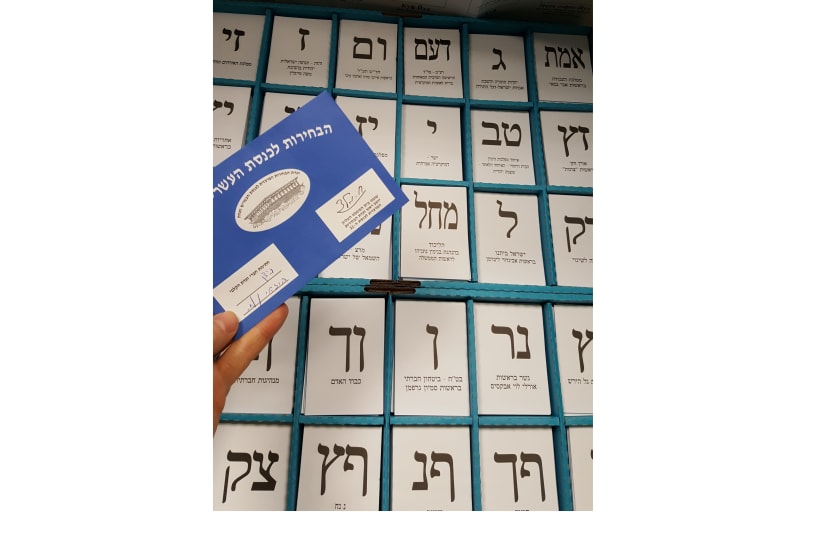Elections are over. April 9 was another celebration of Israeli democracy. This was an important campaign season that enabled voters to once again choose between Benjamin Netanyahu’s Likud Party, which has been in power for 10 years, and the alternative presented by Blue and White. It also provided voters with numerous alternative smaller parties to which they could give their voice.
Israel’s election system is diverse and uncomplicated. There are no districts, no two-house legislature and no layers of candidates.Voters choose a party and vote for it. The only hurdle is that parties must get 3.25% of the vote to cross the threshold and enter the Knesset. That means that of the approximately 6.3 million eligible voters, around 140,000 people must vote for a party to get it into the Knesset. In 2015, 10 parties made it into the Knesset. This year, 13 parties consistently polled above the threshold.
Election Day should be applauded as an example of Israel’s democracy and the long way it has come since the 1940s in establishing a robust system and institutions that support democracy. While many express concerns about various laws and mentalities in Israel that are accused of being “undemocratic,” the reality on the ground is that in turnout and diversity of parties, there is a very healthy democracy in Israel. The different parties express themselves in different languages and official campaign adverts were also in Arabic and Russian.
In addition, there are impressive accomplishments in Israeli society in creating more diverse lists of candidates. Some parties use different reserved seats for younger people, candidates from the periphery, women, minorities and immigrants. Other parties create diverse lists because they believe it is in their best interests. For instance, Ethiopian candidates can be found across the political spectrum. While Israeli parties are also known for being sectoral, with ultra-Orthodox parties including only men in their lists, the overall number of parties ensures that most groups in society receive a voice in the Knesset.
While Election Day is a celebration of Israel’s diversity and its success, it also reminds us of the challenges facing the country.Israelis have grown more cynical over the years regarding the chances for peace. The generation coming of age in this election to vote for the first time, many of them while in their military units serving the country, were born when the Second Intifada broke out. Their parents may have believed in the peace promised by the Oslo Accords, but they saw those hopes dashed in the bus bombings and horrid battles of the early 2000s.
Now Israelis know that peace promises may not bring peace, and that instability in the region, unleashed by the Arab Spring, can bring more danger than what is happening in Gaza or Ramallah. The parties which stand a chance of forming the next coalition mostly do not believe that a magic wand will create peace. They understand that in general, separation barriers and security fences, no matter how ugly they may be, ensure Israel’s security. They understand that Israel must continue to invest in its defense technology to confront regional threats, such as Iran.
Israelis have less trust in politicians, the courts and the media. This erosion of trust should be confronted by the next government, lest Israel drift the way of other Western democracies in becoming too divided. The next government must also confront issues of religion and state. The crises with the Diaspora over the Western Wall and other Diaspora-Israel issues are important to resolve. We must listen more to concerns from abroad, but we must also have a government that ensures Israel’s story and its diverse voices are heard abroad.
Other challenges await, such as postponed plans to regulate land settlement in the Negev and unrecognized Bedouin villages. Also, Israel must continue the march toward closer relations with regional states. That includes listening to Jordan’s concerns while continuing to foster the bond that has grown with India.
There is a broad consensus in Israel regarding many issues. Despite our divided party system, most average Israelis are united on core issues. This should be celebrated. Israel knows how to display impressive national unity. Now is the time to do that.
